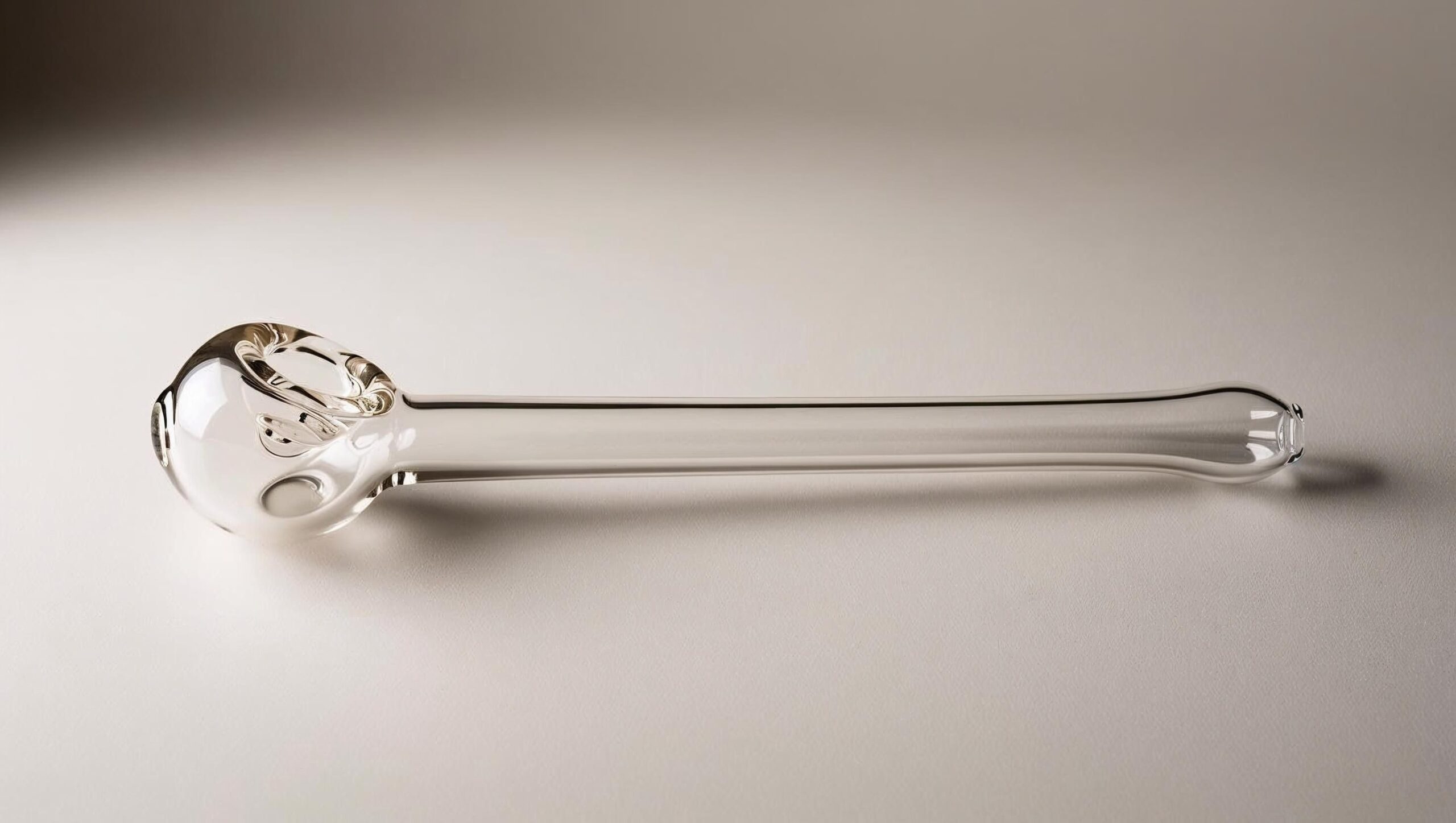Alcohol use disorder remains one of the most pervasive since alcohol is an acceptable, legal substance that’s also highly addictive. A drink at dinner with family, out at a bar or restaurant with friends, or just to unwind in the evening is part of our social fabric, almost expected — yet so easy to become problematic when drinking escalates to something more serious.
Nearly 29 million people in the U.S. suffer from alcohol use disorder, according to the 2023 National Survey on Drug Use and Health, a reminder of how drinking can begin casually but eventually dominate one’s life.
And one simple question, “How long does it take to get addicted to alcohol?”, doesn’t have a clear-cut, simple answer, since addiction can manifest itself in different ways, at different times, for different people.
That doesn’t mean an answer doesn’t exist. Understanding how alcohol abuse begins, the signs and symptoms, and the myriad factors that contribute to it can help you or a family member identify and arrest the onset of a drinking problem before it begins.
What Is an Alcohol Use Disorder?
Alcohol use disorder is a medically-diagnosed condition characterized by an inability to control or stop drinking despite the negative consequences it can create to the detriment of one’s health, family, career or finances — even if they wish to stop.
“Unhealthy alcohol use includes any alcohol use that puts your health or safety at risk or causes other alcohol-related problems,” notes the Mayo Clinic.
The reasons why one might develop an alcohol use disorder can vary and be influenced by a myriad of psychological, physical and social factors. As an umbrella term, alcohol use disorder, according to the National Institute on Alcohol Abuse and Alcoholism (NIAAA), includes the conditions alcohol abuse, alcohol dependence, alcohol addiction and alcoholism (though this term has been minimized for nearly 30 years in favor of the others).
When Does Drinking Become a Problem?
When drinking moves past light to moderate use to regular, even heavy, everyday use, it can become a warning sign of a drinking problem. The progression from occasional drinking to full-blown addiction usually follows a pattern of long-term abuse, observed in people who have developed an alcohol use disorder.
Increased drinking is often due to shifting priorities. Where a drink with friends during a night out was the norm, alcohol now becomes the reason to go out and get drunk. Soon, problematic drinking takes hold when some of the feelings you might be trying to suppress with alcohol become the result of excessive alcohol. They might experience heightened anxiety or insomnia, or pushing away friends or loved ones due to unpredictable behavior caused by drinking.
Dependence on alcohol takes hold when someone can’t control their drinking even when they’re aware they may have a problem. And addiction forms when you have an intense craving to drink but cannot function physically or psychologically without alcohol.
Signs and Symptoms of Alcohol Use Disorder
Alcohol use disorder, according to the NIAAA, can exist on a spectrum of severity that can range from mild to moderate to severe, so the telltale signs and symptoms can differ depending on how problematic one’s drinking has become. However, recognizing the signs can be a lifesaving move for getting yourself or a loved one alcoholism treatment.
Some symptoms of alcohol use disorder include:
- Intense cravings and preoccupations for alcohol
- Building a high tolerance for alcohol, needing to drink more and more to get the same effect
- Failed attempts at quitting drinking but relapsing
- Continuing to drink despite it affecting your relationships with a spouse/partner, family, friends or co-workers
- Experiencing withdrawal symptoms (like nausea, sweating and shaking) and continuing to drink to avoid them
- Making alcohol your number one priority above all other work, family, social or financial obligations
- Partaking in risky behavior, like driving drunk
Is Alcoholism a Mental Health Issue?
“Heavy alcohol use directly affects brain function and alters various brain chemical (i.e., neurotransmitter) and hormonal systems known to be involved in the development of many common mental disorders (e.g., mood and anxiety disorders),” notes a 2000 study.
But does that necessarily make it a mental health condition?
Alcohol use disorder, notes experts, creates difficulties in with processing thoughts and in emotional regulation. These can lead to symptoms consistent with many mental health conditions that may lead one to continue abusing alcohol.
How Long Does It Take to Get Addicted to Alcohol?
With all this information at hand, the question still persists: How long does it take to get addicted to alcohol? The alcohol recovery timeline for developing — and conquering — an alcohol dependence can vary widely and depend on so many different factors.
For some people, addiction can slowly develop after many months or years of heavy drinking before any ill effects begin to materialize.
For others, such as people new to drinking or with very low tolerance levels, addiction can happen more quickly, especially when binge drinking or using alcohol to cope with stress become primary motivators for substance use.
Here’s a look at some other reasons that can dictate how soon someone might develop an alcohol dependency:
Genetic Factors
Studies show that people with a family history of alcohol use disorder (or other addictions) are more likely to develop that same condition themselves. “The risk of alcohol use disorder is higher for people who have a parent or other close relative who has problems with alcohol,” notes the Mayo Clinic.
This, the study notes, can also be influenced by genetic factors, since they can have a strong sway in how one’s brain responds to the effects of alcohol, making some people more vulnerable to dependency than others.
People with alcohol use disorder may also struggle with codependency and alcohol abuse, where family members or loved ones unintentionally enable their addiction. This dynamic can make it even harder to identify and recognize the need for help.
Young People and Binge Drinking
One of the earliest stages of a future alcohol use disorder is in experimenting with drinking, common among underage drinking.
“Young people who drink alcohol are more likely to engage in risky behaviors that can lead to injuries and other health conditions,” notes the Centers for Disease Control and Prevention (CDC). “They’re also more likely to experience social, academic and legal issues.”
Another behavior that can accelerate the path to alcohol addiction is when binge drinking at inordinate amounts is involved. The CDC defines excessive drinking as:
- Binge drinking, four or more drinks for women, five or more drinks for men on one occasion, or within two hours
- Heavy drinking, eight or more drinks for women, 15 or more drinks for men per week
- Any drinking during pregnancy
- Any drinking by people under the age of 21
Co-Occurring Mental Health Issues
Alcohol use disorder is a mental health condition — but mental health conditions can also contribute to the development of alcohol addiction.
In fact, alcohol use disorder frequently occurs with other mental health disorders, and vice versa, notes the NIAAA. These co-occurring disorders often necessitate special alcoholism treatment and a dual diagnosis of the existence of a substance abuse and mental health disorder at the same time.
Many people with mental health issues may reach for a drink to self-medicate and mask feelings of sadness, loneliness, depression or push away other problems in life. This can create a vicious cycle where one problem causes and exacerbates the other.
Reach Out for Help With Drug Addiction
Are you struggling with substance abuse?
Royal Life Centers at Spokane Heights is here to help you recover. Because we care.
The Cycle of Alcohol Addiction
The NIAAA calls alcohol use disorder a “chronic relapsing disorder” that follows a cyclical pattern of incentive salience, negative emotional states and executive functioning. These originate, respectively, in three different parts of the brain, the basal ganglia, the extended amygdala and the prefrontal cortex.
It’s one reason why alcohol use disorder is considered a brain disorder, since it can create lasting, negative changes to neurological functioning that may lead someone to keep drinking or risk relapse.
“Drinking to cope with stress — while it may provide temporary relief from emotional discomfort — tends to enhance negative emotional states between bouts of alcohol consumption,” notes the NIAAA. “These changes can motivate further drinking and cause an individual to become stuck in an unhealthy cycle of alcohol consumption.”
The Stages of the Cycle of Alcoholism
The first phase of the cycle is the binge/intoxication stage, where drinking works to activate the brain’s reward system, boosting euphoria and reducing feelings of anxiety. But this can reinforce the compulsion to keep drinking which, over time, can lead to the formation of powerful triggers, such as specific environments or social settings — strong enough to make changes in the basal ganglia to keep someone drinking even when they don’t intend to.
The negative effect/withdrawal stage is marked by increased alcohol juxtaposed with a reduction in the natural production of dopamine, leading to a reward deficit when one stops drinking. This can result in severe withdrawal symptoms — prompted by the brain’s stress systems — such as anxiety, irritability and uneasy feelings. At this stage, someone drinks not to feel pleasure, but to avoid the discomfort of withdrawal.
Preoccupation and anticipation dominate the last stage of the alcohol addiction wheel. Here, someone becomes positively consumed with drinking — thinking of drinking, obtaining alcohol and seeking out opportunities to drink. The prefrontal cortex, which controls decision-making and impulse regulation becomes compromised, impaired to the point of difficulty in prioritizing long-term goals versus immediate gratification, so much so that even after periods of alcohol abstinence, relapse is almost inevitable due to changes in neurological function.
The Benefits of an Alcohol Rehab Center
The notion of quitting alcohol cold turkey and solo may seem admirable in theory, but the reality is that withdrawal symptoms from heavy alcohol use can be dangerous and even fatal, emphasizing just how important it is to seek help from a proper alcohol treatment center with an alcohol detox program. Here are some reasons why:
Skilled and Experienced Treatment Specialists
A successful alcohol rehab program is defined by the skilled and compassionate medical staff who understand the complexities of alcohol use disorder, led by a mission and a commitment to help everyone who signs up for treatment to get clean and sober. From case managers to doctors and nurses, therapists and addiction specialists to support staff at an alcohol treatment center, they make sure your needs come first and are met above all else, making sure you’re set on the right path to recovery.
Medication-assisted Treatment for Alcohol Addiction
What is medication-assisted treatment? Also abbreviated as MAT, it’s a type of treatment for a problem drinker with a severe alcohol addiction who may need prescription medication to help reduce cravings and mitigate withdrawal symptoms. In MAT, medications like naltrexone, acamprosate and disulfiram are most commonly and effectively used.
Evidence-Based and Holistic Therapies
When something is “evidence-based,” it means that it’s been proven to be effective through repeated, successful studies. For alcoholism treatment, sophisticated talk therapies like cognitive behavioral therapy (CBT) and dialectical behavioral therapy (DBT) dive deep into helping patients defy and reframe negative thought patterns surrounding alcoholism. Group therapy rallies together others in recovery to support, bolster, and lean on each other as you journey, in a like-minded fashion, down the road to recovery with collective sobriety in sight.
Aftercare and Relapse Prevention
Recovery isn’t a strict start-to-finish, A to Z paradigm. It doesn’t end when alcohol rehab is completed. In fact, it’s just the start. Sobriety is a lifelong lifestyle change that you need to maintain and upkeep every single day, pledging to stay sober no matter the time or place. But upon conclusion of rehab, your alcohol treatment center offers aftercare services to enable your continued recovery. You’ll have the opportunity to connect with a case manager who can provide you with resources local Alcoholics Anonymous and other support groups to help you prevent relapse and develop additional skills to navigate stressors and triggers without turning back to drinking.
What Is Alcohol Rehab Like?
Alcohol rehab is composed of certain indispensable elements that follow a structured order to make sure that recovery from alcohol use disorder is comprehensive and complete:
Alcohol Detox
The word “detox” is common in the world of alcohol rehab, but what does it involve? It’s the shortest phase of recovery, but also the most crucial, since it involves spending time, however brief, to remove a drug from one’s system. Clearing the body of alcohol prepares you with a proverbial clean slate to begin formal therapy. But detox can be challenging since withdrawal symptoms like nausea, sweating, anxiety and cravings are common. For more severe addictions, these may include hallucinations after a prolonged period of withdrawal, making it imperative that medical staff and a comforting, safe environment are present to see detox through to the end.
Inpatient Alcohol Treatment
Residential inpatient treatment following detox at Royal Life Centers at Spokane Heights allows you to live onsite to devote your undivided attention to recovery, 24/7, without distractions, triggers or relapse risks, so you can begin the healing process and make it your top priority and focus, augmented by therapy, personal wellness and a tailored treatment plan over the course of two weeks nestled at a home-like environment in Sumner, Wash.
Outpatient Alcohol Treatment
Outpatient programs allow you to continue your daily responsibilities while attending therapy sessions, enabling you to return home in the evenings after attending counseling and therapy during the day. As opposed to impatient treatment for people with more severe addictions, outpatient alcohol treatment is ideal for people with mild to moderate addiction or those transitioning from inpatient care.
Aftercare and Sober Living for Alcohol Abuse
Our case managers work with guests at all levels of care, from medical detox to aftercare, a phase of recovery that begins once treatment is finished. From here, your sobriety is in your hands. You may decide that exiting back into the world may be too big of a responsibility to shoulder, which is where sober living plays a role — an opportunity to live, for a short period of time, with others segueing out of treatment into the real world with alcohol-free housing. Likewise, you’ll be provided with a wealth of resources, from 12-step programs to support groups to facilitate your continued sober life once you’re back into the world after graduating from a treatment program.
How Do I Pay for Alcohol Rehab?
One of the most common concerns about alcoholism treatment is the cost. Fortunately, there are several ways to pay for rehab, breaking down any financial barriers that might prevent you from getting the help you need.
Using Insurance for Rehab
Many health insurance plans cover the cost of alcohol treatment centers, including detox, therapy and aftercare. If you’re unsure if your coverage will align with treatment, fill out this form and one of our admissions specialists will be in touch to verify your insurance and minimize your out-of-pocket expenses.
Private Pay
Royal Life Centers at Spokane Heights also offers a private pay option in tandem with health insurance coverage, complete with payment plans to enable you to finance your time in inpatient or outpatient with ease, affordability and flexibility.
What If I Don’t Have Health Insurance?
If you don’t have health insurance, the door is not closed on treatment. We can work with you to explore your options, whether it’s sliding scale fees, government-funded programs or payment plans to help cover the cost of treatment in any way possible. Our commitment is to get you the help you need first and find a way to make it affordable, manageable and stress-free to cast focus on sobriety, not financial stress.
The road to recovery starts with you. You can change your life with one phone call by contacting us today and breaking free from alcohol addiction.
REFERENCES:
- Alcohol Use Disorder (AUD) in the United States: Age Groups and Demographic Characteristics | National Institute on Alcohol Abuse and Alcoholism (NIAAA)
- Understanding Alcohol Use Disorder | National Institute on Alcohol Abuse and Alcoholism (NIAAA)
- Facts About Excessive Drinking | Drink Less Campaign | CDC
- Alcohol use disorder – Symptoms and causes – Mayo Clinic
- Alcohol Use Disorder: What It Is, Symptoms & Treatment
- Alcohol use disorder – Symptoms and causes – Mayo Clinic
- Alcoholism and Psychiatric Disorders: Diagnostic Challenges – PMC
- Mental Health Issues: Alcohol Use Disorder and Common Co-occurring Conditions | National Institute on Alcohol Abuse and Alcoholism (NIAAA)
- About Underage Drinking | Alcohol Use | CDC

























